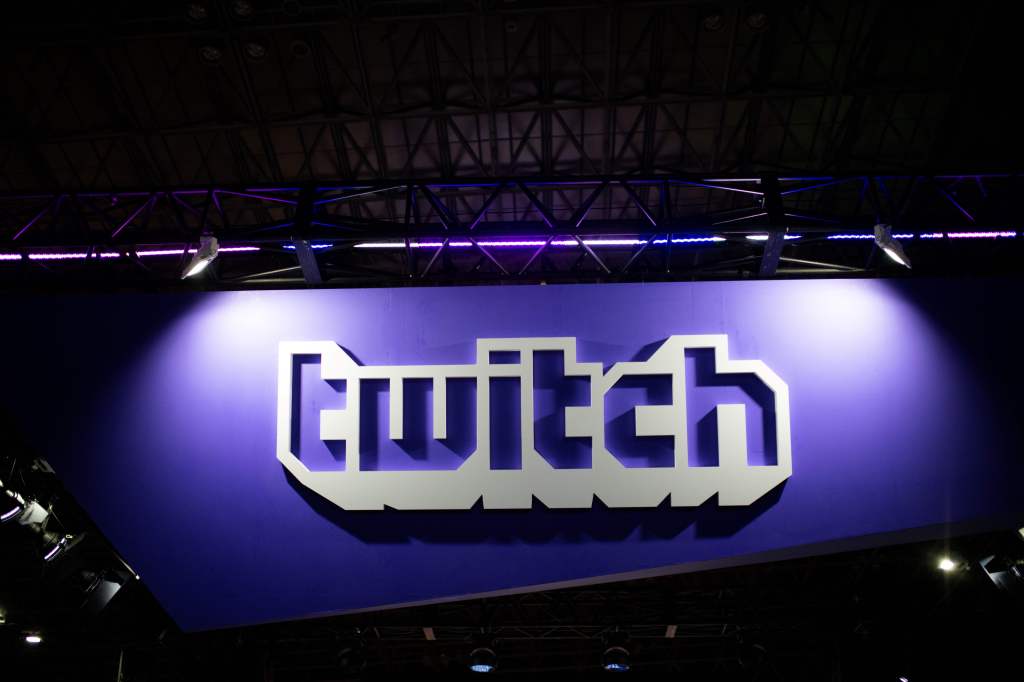Though attendees grumbled about Las Vegas as a city, the community sentiment at this year’s TwitchCon was notably more optimistic than it was at last year’s convention.
TwitchCon 2023 closed out a tense year for the platform, which was punctuated by rounds of layoffs, unpopular policy decisions and the sting of competitors poaching major streamers with glitzy non-exclusive deals and more favorable revenue splits. Twitch managed to mend its fraught relationship with its community by walking back several controversial policy decisions in the months leading up to TwitchCon.
During the event’s opening ceremony, the company offered an olive branch to its streamers by announcing that it would allow simulcasting to any other livestreaming service.
We’ve announced that you can simulcast on ANY live streaming service!
Check out our new guidelines and FAQ here: https://t.co/TBjulaqshY#TwitchConVegas 💜 pic.twitter.com/dE4XJEtdAw— Twitch (@Twitch) October 20, 2023
Simulcasting, or streaming on Twitch and any of its rival platforms at the same time, was banned for much of the platform’s history. Partners were forbidden from streaming to any rival platform, like YouTube or Facebook, until Twitch lifted its exclusivity clause last year. The platform also lifted restrictions on simulcasting for mobile short-form video platforms, like Instagram and TikTok, last year.
Tech and VC heavyweights join the Disrupt 2025 agenda
Netflix, ElevenLabs, Wayve, Sequoia Capital — just a few of the heavy hitters joining the Disrupt 2025 agenda. They’re here to deliver the insights that fuel startup growth and sharpen your edge. Don’t miss the 20th anniversary of TechCrunch Disrupt, and a chance to learn from the top voices in tech — grab your ticket now and save up to $675 before prices rise.
Tech and VC heavyweights join the Disrupt 2025 agenda
Netflix, ElevenLabs, Wayve, Sequoia Capital — just a few of the heavy hitters joining the Disrupt 2025 agenda. They’re here to deliver the insights that fuel startup growth and sharpen your edge. Don’t miss the 20th anniversary of TechCrunch Disrupt, and a chance to learn from the top voices in tech — grab your ticket now and save up to $675 before prices rise.
Allowing simulcasting is the latest in Twitch’s apparent pivot away from exclusivity — a move that streamers have been pushing for as the creator industry evolves to demand a diversified online presence. In an interview with TechCrunch, Twitch’s Chief Marketing Officer Rachel Delphin discussed how creator feedback shapes the platform’s policy decisions, and why investing in the Twitch community is so vital as livestreaming competitors gain popularity.
This interview has been edited and condensed for clarity.

TechCrunch: There’s been a lot of chatter about other streaming platforms like YouTube or Kick, but Twitch still dominates livestreaming. Why do you think that is?
Delphin: Part of it, I think, is our history and expertise. We’ve been doing this for a long time, 16 years. Who’s been in the game for 16 years? I think the other thing is focus. It isn’t something that’s part of our business and company, it is our business and company. This is what we do. We’ve been able to build something that transcends technology, which is the community. And that is the thing that’s really hard to build.
I also mean the behavior of being in a community. So if you’re a streamer, you’ve got an engaged chat, because of the norms and culture that’s been set. You’ve got people who are going to subscribe to your channel, share with bits, donations or whatever means of support that they can give, who want to moderate your channel, who show up to your meetups. I think that culture was established really early and obviously it’s grown in 15 years, is a huge part of why we’ve been able to lead for so long.
You’ve always stressed that the core of Twitch will always be livestreaming, but in the last year, Twitch has really put out a lot of features that other platforms have, like Stories and discoverability feeds.
They’re still about, ultimately, how to serve a live content creator. How do you support their needs? Discovery and growth are interconnected, and the reality is, a lot of Twitch is a really meaningful experience. You’re not flipping it open so you can have a quick 10-second, two-minute sort of session. You’re really engaged, right? You’re sitting down there for a while.
However, that’s how some people do that. If you’re standing in line at Starbucks, and you want to do a quick dive into the content, right? And so giving people a way where they can either discover new creators, they can do that relatively quickly and much simpler than trying to navigate your way through Twitch. But also, providing content creators a way to nurture, build and update their community even when they’re not live, is really important. At the end of the day, we’re trying to support our live content creators — for stories, it’s a great way to connect with community when you’re not live, and feed, for when folks are looking for a sort of quick check-in. It’s much easier to discover new content creators.
It seems like a lot of that is designed to keep viewers on Twitch as a platform instead of having to check other platforms. But with that in mind, I’d love to know what went into the decision to allow simulcasting now?
My perspective on it is, at the end of the day, we’re here to support content creators. A lot of folks have been utilizing the policy around mobile livestreaming services, so they’re able to do simulcasting there as of last August. Now, in talking with streamers, they’re like, “Look, I want a way to try to bring other people in, and simulcasting is a really great tool that either I feel very strongly or I’ve experienced myself using these mobile services, where I’m seeing more people actually come to my channel because I’m able to reach them through these other services.”
And so the decision is just that they should have the freedom to explore. Yeah, it’s pretty simple.
So I just talked to Mike about monetization and the sense of discontent that a lot of people have had over Twitch in the last year or so. Aside from the money aspect of it, how has Twitch responded to feedback from its creators in terms of features for the community?
I hope TwitchCon makes clear, certainly to the folks who are here, that their feedback is really important. We seek it out. So a lot of the content here [at TwitchCon] is designed to share and solicit feedback. Product Q&As, safety Q&As, sessions about specific products or monetization — all so that we are able to have that nuanced back-and-forth with the community.
Community feedback, whether it’s broadcast to us, or whether it’s in UserVoice, whether it’s in research forums or casual forums, is something we’re collecting all the time.
Twitch’s money guy talks about the revenue split controversy and its monetization long game
Definitely. I also want to talk about how Twitch views the supposed loss of streamers who are prioritizing different platforms in their discontent. If someone with like, 15 million followers decides to stay on Twitch, but mostly prioritizes streaming on another platform, how does Twitch view that? What processes does Twitch have to make sure they stay?
Look, we think we’re the best home. We’re building the right products, having events, engaging regularly. And the community obviously tells a huge story, right? We are the best at this. We’ve been doing it a long time, are highly invested in it, and we plan on doing it a super long time. We’ve got that stability, and opportunity that exists here.
But ultimately, some folks have been getting really great opportunities, and our perspective has been that it’s great for them. And it’s good for livestreaming. And our experience has also been, I think, when there are more livestreams, there’s more people who are exposed to livestreaming, and that kind of content, that community’s interest in content — that’s good for us. And it’s good for streamers. It tends to expand the universe of livestreaming.
I think Twitch as a platform is very uniquely responsive to community feedback, at least from what I’ve seen in other platforms I’ve covered.
Yeah, and like I said, sometimes it’s a problem identification. We are really ingrained into the community. There’s a lot of people at Twitch who are from the community, [they] are streamers themselves, affiliates, partners. So it’s a pretty fluid boundary between Twitch staff and people who are Twitch community.
Most of the people who work here are missionaries, not mercenaries, and they love Twitch. It’s how they spend their time even when they’re not at work. So we get exposed to that perspective in every single one.
And we wouldn’t be where we are today without our amazing streamers and viewers. 💜 https://t.co/kDJdHqeM00
— Twitch (@Twitch) October 23, 2023
Thinking about that response to the community — for the longest time, Twitch was the only real livestreaming platform. Livestreaming content doesn’t really compare to the static content on Instagram or TikTok. But there have been a few competitors popping up very recently. How is Twitch staying on top of that?
I don’t mean to be dismissive or anything, but there’s always been times in the history of Twitch when there are competitors. And the way that we lead through that is the same thing, which is, if we are the best place to be a live content creator, then folks will continue to choose us. Communities will continue to show up for them. And that’s the best way for us to maintain our position.
It also seems like other platforms are really pushing the fact that you can get higher revenue splits from them, but it seems like Twitch leans on the pull of investing in its community.
We’re really intentional about it. I mean, TwitchCon is a huge investment in the community. And we do it twice a year. But we also support community meetups. We support them financially, provide software, we got to those meetups.
We have guild groups that started this year, where we built groups for Black women and Latin streamers. They’re run and overseen by streamers who applied and were hired into these positions. They’re paid roles to help cultivate community, provide support and safe spaces.
Access to Twitch community is a key part of my job for marketing. It’s a huge pillar of our work. Let’s make sure we are where streamers are, whether that’s online, IRL, let’s try to facilitate collaborations for them. And give them as many opportunities to connect with one another and their fans as humanly possible. Just like community happens on Twitch, it’s also a huge part of our marketing strategy.
TwitchCon 2023 was better than last year, but everyone hated Las Vegas


